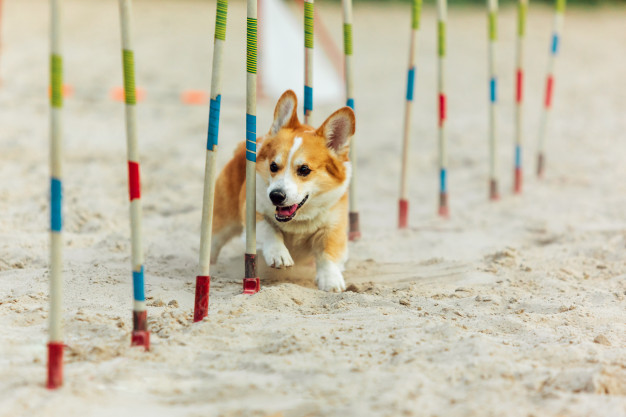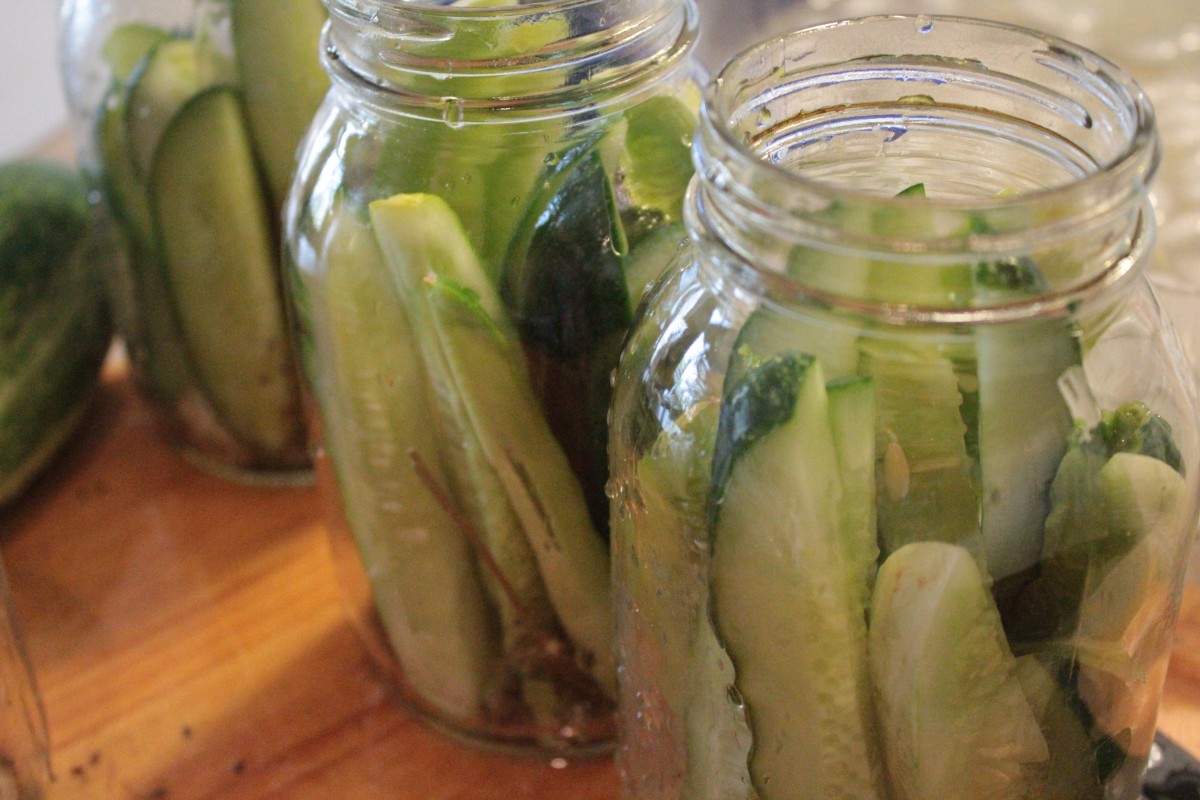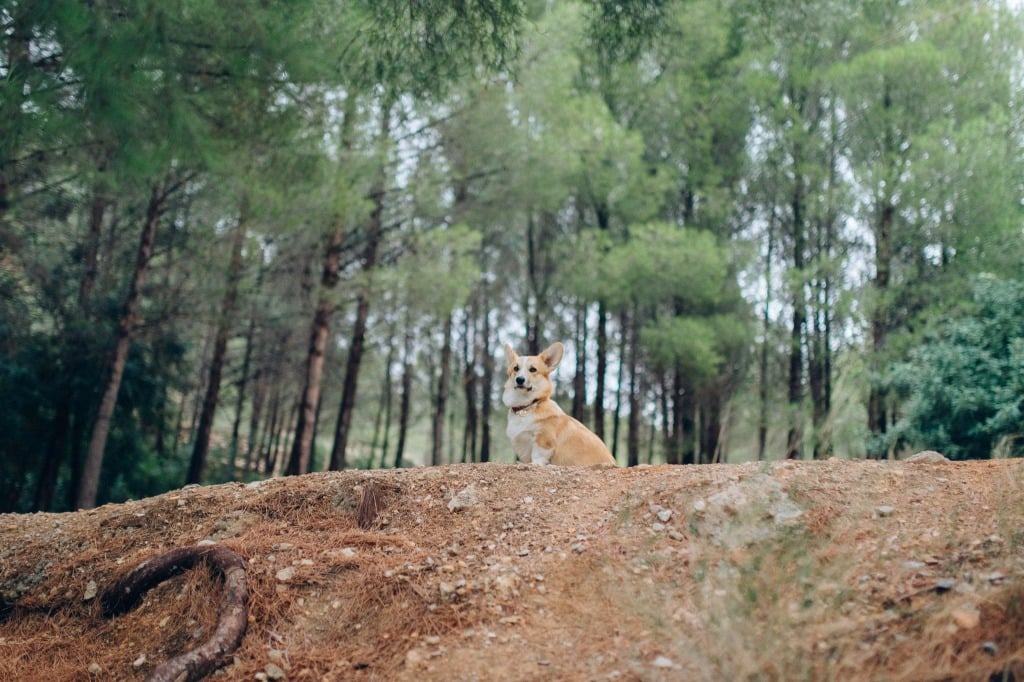Bladder Control and Your Corgi: Expert Tips to Consider

Did you know that over 20% of Corgis struggle with bladder control issues at some point in their lives? It's a common problem that many Corgi owners face, but the good news is that there are expert tips and techniques to help you and your furry friend navigate this challenge.
In this guide, we will explore everything you need to know about bladder control and your Corgi. From understanding their unique bladder anatomy to establishing a consistent routine and effective house training techniques, we've got you covered.
We'll also discuss how to address bladder issues in older Corgis and how to identify signs of bladder problems. Plus, we'll share some helpful tools and products designed specifically for bladder control.
So let's dive in and ensure your Corgi stays happy, healthy, and accident-free!
Understanding Corgi Bladder Anatomy
To properly understand your Corgi's bladder control, it's essential to familiarize yourself with the unique anatomy of their bladder. When it comes to bladder health, Corgis are prone to certain issues, such as urinary tract infections. Understanding their bladder anatomy can help you prevent these problems and ensure your furry friend stays healthy and comfortable.
Corgis have a relatively small bladder compared to larger breeds, which means they may need to go outside more frequently. The bladder itself is a muscular organ that stores urine until it's ready to be eliminated. It's important to note that Corgis have a shorter urethra, the tube that connects the bladder to the outside, which can make them more susceptible to urinary tract infections.
To maintain your Corgi's bladder health and prevent infections, it's crucial to provide them with regular bathroom breaks and ensure they have access to fresh water throughout the day. Additionally, it's essential to keep their environment clean and hygienic to minimize the risk of bacteria buildup.
Establishing a Consistent Routine
Maintaining a consistent routine is crucial for ensuring your Corgi's bladder control and overall well-being. By establishing a consistent routine, you won't only help your Corgi develop good bladder habits but also provide them with a sense of security and stability.
Here are some tips to help you create a consistent routine for your furry friend:
- Establish a regular feeding schedule:
- Feed your Corgi at the same time every day.
- Avoid feeding them too close to bedtime to prevent nighttime accidents.
- Implement a regular potty routine:
- Take your Corgi outside to eliminate at consistent intervals throughout the day.
- Reward them with praise and treats when they go potty in the designated area.
Effective House Training Techniques
Establishing effective house training techniques is essential for ensuring your Corgi's bladder control and preventing accidents in the house. When it comes to housebreaking techniques, consistency is key.
Start by creating a designated potty area outside and take your Corgi there regularly, especially after meals and naps. Use positive reinforcement like treats and praise when they successfully go outside.
Inside the house, confine your Corgi to a small area or use a crate when you can't supervise them. This will help prevent accidents and teach them to hold their bladder.
Keep a consistent schedule for feeding and bathroom breaks, and be patient with your Corgi as they learn. Remember, accidents may happen, but with consistent potty training methods, your Corgi will soon become a pro at bladder control.
Addressing Bladder Issues in Older Corgis
If your older Corgi is experiencing bladder issues, there are several steps you can take to address this problem. It's important to remember that incontinence is a common issue among senior corgis, but with the right approach, you can help your furry friend feel more comfortable and prevent accidents.
Here are some tips for addressing bladder issues in older corgis:
- Ensure regular vet check-ups to rule out any underlying medical conditions that may be contributing to the problem.
- Consider adjusting your corgi's diet to include more fiber, as this can help regulate their bowel movements and prevent accidents.
- Schedule regular bathroom breaks throughout the day to give your corgi ample opportunity to relieve themselves.
- Invest in dog diapers or belly bands to prevent accidents inside the house.
- Create a designated potty area in your yard and use positive reinforcement to encourage your corgi to use it.
Identifying Signs of Bladder Problems
When your older Corgi starts experiencing bladder issues, it's important to be able to identify the signs. One common bladder problem in dogs is a bladder infection. If your Corgi is urinating more frequently than usual, has accidents in the house, or experiences pain or discomfort while urinating, it could be a sign of a bladder infection.
Another bladder problem that dogs, including Corgis, can face is urinary incontinence. This is when your dog has difficulty holding their urine and may leak urine while sleeping or lounging. If you notice any of these signs, it's important to consult your veterinarian for a proper diagnosis and treatment plan.
Tools and Products for Bladder Control
Now that you've learned how to identify signs of bladder problems in your Corgi, let's talk about some tools and products that can help you maintain better bladder control.
Effective training aids can make a big difference in teaching your Corgi to hold their bladder and go in the right place. From potty pads to indoor grass patches, there are plenty of options to choose from.
Additionally, finding the best containment option, such as a secure crate or playpen, can also help prevent accidents and give you peace of mind.
Effective Training Aids
To effectively train your Corgi and aid in bladder control, consider using various helpful tools and products available on the market. These training aids can assist in behavioral modification, making the process smoother and more efficient. Here are some options to consider:
- Potty Pads: These absorbent pads are great for teaching your Corgi where to go potty. Place them in a designated area and gradually move them closer to the outside door to encourage outdoor elimination.
- Belly Bands: If your Corgi is prone to marking or accidents, belly bands can be a useful tool. These wrap around the dog's belly, preventing urine from reaching furniture or carpets.
- Clicker: Using a clicker can help reinforce positive behavior during potty training. The distinct sound signals to your Corgi that they've done something right, making it easier for them to understand what you want.
- Treats: Positive reinforcement is crucial in training. Use small, healthy treats as rewards for successful bathroom breaks. This will motivate your Corgi to continue good habits.
Best Containment Options
Consider these three top containment options for aiding bladder control in your Corgi.
When it comes to house training techniques, having the right tools and products can make all the difference.
The first option is a crate or kennel. This provides a safe and secure space for your Corgi when you can't supervise them, helping to prevent accidents. Make sure the crate is the right size for your dog, with enough room to stand, turn around, and lie down comfortably.
The second option is indoor potty pads. These absorbent pads are designed to mimic the feel of grass and can be placed in a designated area inside your home. They're especially useful for puppies or dogs that can't go outside due to health reasons.
Lastly, consider a belly band or diaper. These can be used for male dogs that have difficulty controlling their bladder. They're easy to put on and remove, providing an extra layer of protection.
Seeking Professional Help and Advice
If you're struggling with your Corgi's bladder control issues, seeking professional help and advice can make a world of difference. A vet consultation can provide numerous benefits, including:
- A thorough examination of your dog's health
- Personalized recommendations
- Access to specialized treatments
With expert guidance, you'll have the advantage of receiving tailored advice and learning effective strategies to address your Corgi's bladder control problems.
Don't underestimate the importance of professional assistance when it comes to your furry friend's well-being.
Vet Consultation Benefits
When seeking professional help and advice for your Corgi's bladder control, consult a veterinarian for the best guidance. Vet consultation benefits are crucial in ensuring the health and well-being of your furry friend. Here's why professional assistance is of utmost importance:
- Knowledge and Expertise:
- Veterinarians have extensive knowledge and expertise in diagnosing and treating bladder control issues in dogs.
- They can accurately identify the underlying causes of your Corgi's bladder problems and provide appropriate treatment options.
- Personalized Treatment Plans:
- Each Corgi is unique, and what works for one may not work for another. Veterinarians can create personalized treatment plans tailored to your dog's specific needs.
- They consider factors such as age, breed, overall health, and lifestyle to develop a comprehensive approach that addresses your Corgi's bladder control issues effectively.
Expert Guidance Advantages
Seeking professional help and advice from a veterinarian offers invaluable expertise for addressing your Corgi's bladder control issues. When it comes to your beloved furry friend's health and well-being, it's important to consult with experts who can provide the best guidance.
Veterinarians have years of experience in dealing with various pet-related issues, including bladder control problems. They can offer expert tips tailored specifically to your Corgi's needs. Whether it's recommending dietary changes, suggesting exercises to strengthen their pelvic muscles, or prescribing medication, a veterinarian can provide you with a comprehensive plan to help improve your Corgi's bladder control.
Professional Assistance Importance
To effectively address your Corgi's bladder control issues, it's essential to enlist professional assistance and seek expert advice. While you may think that you can handle the problem on your own, it's always better to consult with a veterinarian or a professional dog trainer. Here's why:
- Vet Recommendations:
- Veterinarians have the expertise and knowledge to diagnose any underlying medical conditions that may be causing your Corgi's bladder control issues. They can provide you with proper guidance on how to manage and treat the problem effectively.
- They can also recommend appropriate medications or treatments that can help improve your Corgi's bladder control.
- Trainer Assistance:
- A professional dog trainer can help you address any behavioral issues that may be contributing to your Corgi's bladder control problems. They can provide you with valuable insights and techniques to train your dog to have better control over their bladder.
- They can also assist you in implementing a structured routine and training program that promotes good bladder habits.
Frequently Asked Questions
How Long Does It Typically Take for a Corgi to Establish a Consistent Bladder Routine?
It typically takes a corgi some time to establish a consistent bladder routine. Bladder training progress can vary depending on the individual dog. Corgis may face challenges with bladder control, but with patience and consistent training, they can improve.
Are There Any Specific House Training Techniques That Are More Effective for Corgis Compared to Other Dog Breeds?
When it comes to house training your corgi, there are some techniques that can be more effective for them compared to other breeds. Using positive reinforcement, consistency, and crate training can be helpful tools for corgi bladder control.
What Are Some Common Signs of Bladder Problems in Corgis That Owners Should Be Aware Of?
Are you worried about your Corgi's bladder control? Keep an eye out for signs like frequent accidents, difficulty urinating, or blood in the urine. Remember, it's important to start bladder training early for a happy, healthy pup!
Can Using Certain Tools or Products, Such as Belly Bands or Pee Pads, Help With Corgi Bladder Control?
Using tools like belly bands or pee pads can be effective in helping with corgi bladder control. Additionally, implementing proper training methods can greatly improve their bladder control over time.
When Should a Corgi Owner Seek Professional Help or Advice for Their Dog's Bladder Issues?
If your corgi is having bladder issues, it's important to know when to seek professional help. Look out for signs like frequent accidents or discomfort. Consulting a vet can provide guidance on bladder control supplements and behavioral modifications.











